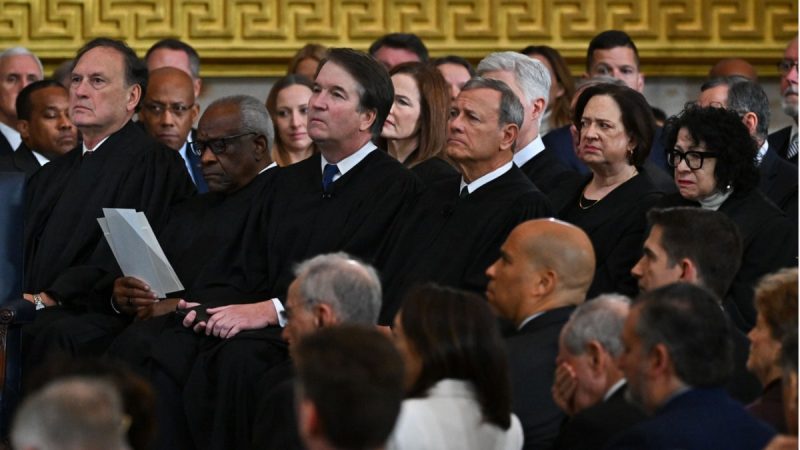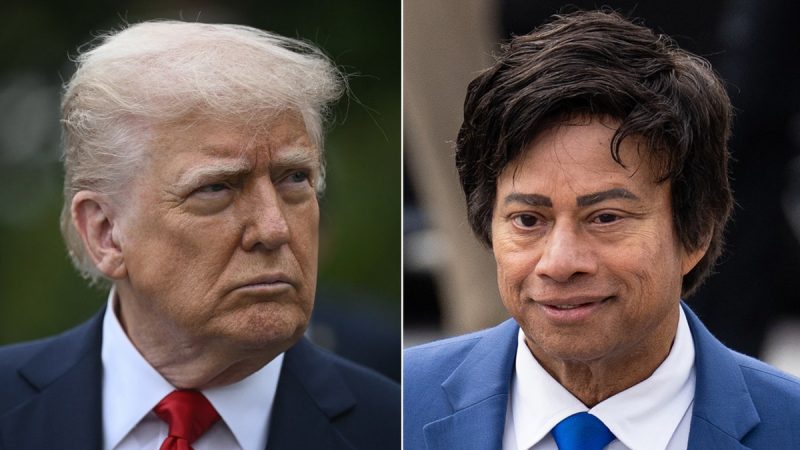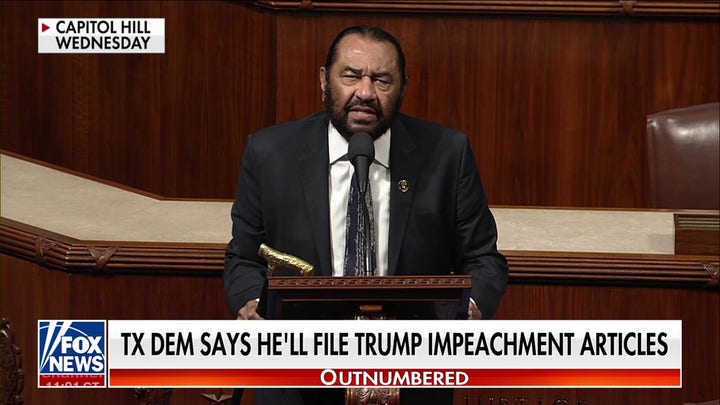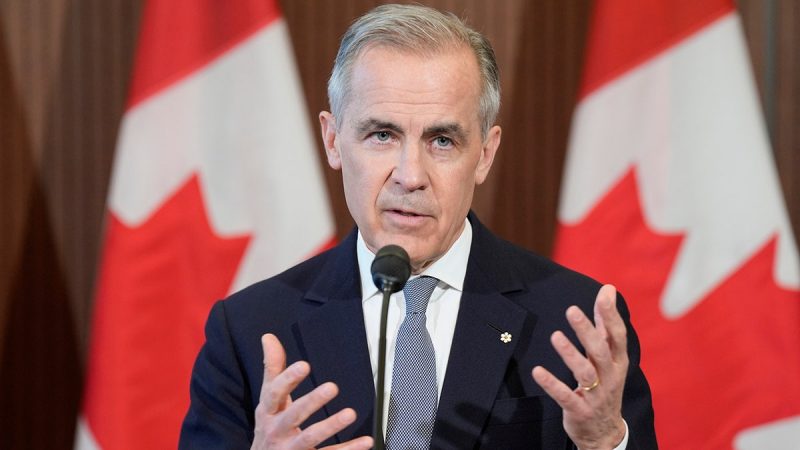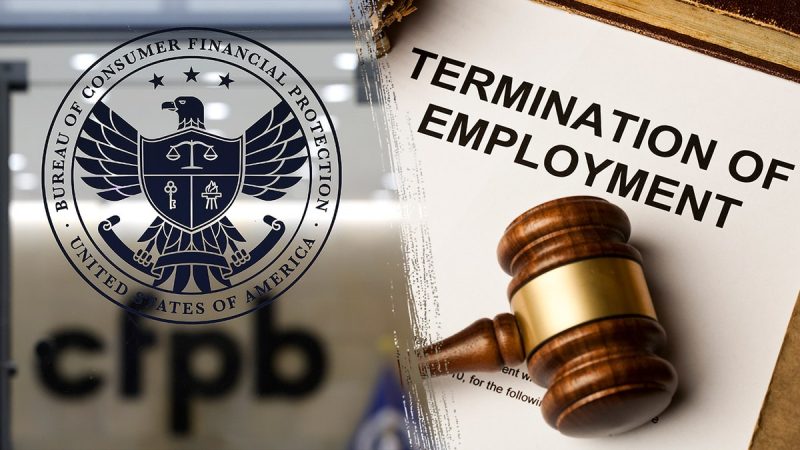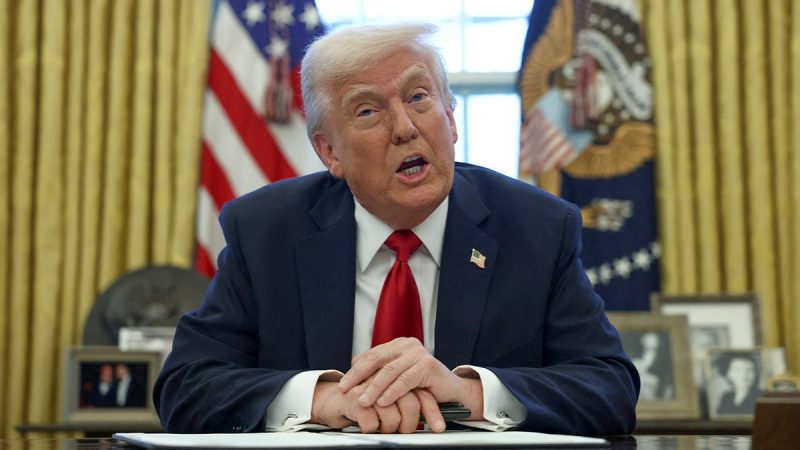
President Donald Trump’s second term has taken the world by storm in his first 100 days, leaving allies and adversaries scrambling to respond to new U.S. tariffs, stalled peace negotiations and hardball diplomacy from the White House.
On the campaign trail, he pledged to hit allies and foes alike with massive tariffs, end Russia’s war in Ukraine within 24-hours and threatened that ‘all hell’ would break out if all hostages were not freed from the clutches of Hamas in Gaza by the time he entered the Oval Office.
While Trump has been able to make good on some of his promises, other ambitions remain unmet. Here’s what Trump has accomplished and what challenges remain:
Where Russia’s war in Ukraine stands
Trump last week conceded that his pledge to end the three-year-old war in Ukraine within 24 hours of taking office was ‘figurative,’ acknowledging it was never a realistic goal. The conflict has claimed a reported 1 million casualties.
‘I said that as an exaggeration,’ he told reporters.
While Trump has faced criticism over his ability to bring Russian President Vladimir Putin to the negotiating table, his team — led by Special Envoy Steve Witkoff and Secretary of State Antony Rubio — has made some headway, securing a 30-day ceasefire protecting Ukraine’s energy infrastructure.
But Putin has so far refused to enter any other brokered agreements, despite Kyiv’s willingness to play ball even after the historic Oval Office blow-up between Trump and Ukrainian President Volodymyr Zelenskyy in February.
Though Trump appeared to hold a grudge against Zelenskyy after Ukraine rejected a proposed mineral deal — even blaming him in part for Russia’s illegal invasion — relations between the two leaders appeared to improve over the weekend. Trump also set a new ultimatum for Putin, issuing a deadline to reach a ceasefire deal.
‘Two weeks or less,’ Trump told reporters Sunday, though he later added a bit more time would be acceptable. ‘We’ll see what happens over the next few days. We’ll probably learn a lot.’
Trump said he was ‘surprised and disappointed’ after Putin last week levied a barrage of missiles at Ukraine’s capital city of Kyiv in a strike that killed 12 civilians and injured nearly 100 more.
‘I want him to stop shooting, sit down and sign a deal,’ Trump said in reference to Putin. ‘We have the confines of a deal, I believe, and I want him to sign it and be done with it and just go back to life.’
Trump has not said how or whether he will hold Putin accountable if he doesn’t agree to a ceasefire and the White House has not responded to Fox News Digital’s repeated questions regarding the issue.
Gaza ceasefire
Before entering office, Trump repeatedly threatened Hamas that ‘all hell’ would break out if they didn’t return all hostages by the time he arrived at the White House.
But the Palestinian terror group has ignored his threats and rejected Trump’s February proposal to turn the Gaza Strip into the ‘Riviera of the Middle East,’ saying it would adhere to a ceasefire agreement brokered between the terrorist organization and Israel, mediated by the U.S., Qatar and Egypt.
Trump has not hit Hamas, nor have his negotiations to release hostages looked all that different from his predecessor’s.
The first phase of what was intended to be a three-phase ceasefire saw the return of 33 hostages taken by Hamas, the majority of whom were abducted in the Oct. 7, 2023 attack on Israel, as well as the release of 1,800 Palestinian prisoners held by Jerusalem.
But 59 hostages remain in Gaza, including American-Israeli Edan Alexander, and hopes of a second phase collapsed after negotiations stalled on terms surrounding future hostage releases, and in March Israel reignited military operations in the Gaza Strip.
A Qatari official on Sunday said the main hiccup in securing a ceasefire following the latest round of talks last week is that Israel has not presented a clear solution to end the war in exchange for hostage releases, Reuters reported.
Trump on Friday said he pushed Israeli Prime Minister Netanyahu to reopen aid corridors into Gaza, which have been blocked since March 2, in order to allow food and medicine to reach Palestinians, though humanitarian corridors have not yet been opened.
Iran nuclear agreement
Trump on Sunday said he believes a deal to end Iran’s nuclear program can be achieved ‘without having to start dropping bombs all over the place.’
Details on nuclear negotiations between the U.S. and Iran in Oman on Saturday, in which the third round of talks were held, remain nil, though Iranian Foreign Minister Abbas Araghchi reportedly told Iranian state media they were ‘very serious and work-focused.’
Araghchi described the hours-long talks as having finally ‘entered into deeper and more detailed discussions,’ though no specifics of the negotiations have been released.
It remains unclear if the Trump administration is pursuing a halt to Tehran’s nuclear advancement or a complete disarmament arrangement, which would see the destruction of Iran’s centrifuge facilities and its stockpiles of near-weapons-grade enriched uranium.
It also remains unclear how much time the president will allow for the negotiations to carry on.
Relations with China deteriorate
Relations between the U.S. and China have hit a level of animosity not seen between the two superpowers since Washington normalized ties with the Chinese Communist Party (CCP) in the 1970s.
The initial U.S.-China trade war started during Trump’s first term, in which he hit China with 25% tariffs on $50 billion in Chinese goods in April 2018.
Beijing responded by slapping reciprocal tariffs on $50 billion worth of U.S. goods, mostly targeting U.S. agricultural products worth some $16.5 billion — a trade war that saw the loss of a quarter of a million U.S. jobs by January 2021, according to the U.S.-China Business Council (USCBC).
From the campaign trail, Trump threatened to hit China with 60% tariffs — which he nearly did in early April when he announced an additional 34% tariff on top of the existing taxes already in place.
But what had already sent geopolitical shockwaves and sparked near-immediate market concerns was further escalated just over a week later when Trump ratcheted up tariffs on Beijing to 145%.
China has responded by hitting Washington with its own 125% reciprocal tariffs on U.S. imports and, according to a Bloomberg report on Monday, cargo supply shipments have already dropped by 60%.
Americans are expected to begin feeling the pains of the trade war come mid-May.
Trump said last week he had reached some 200 trade deals with countries affected by his sweeping tariffs — measures that hit nearly every U.S. trading partner, including longtime allies. He paused the tariffs for 90 days earlier this month following intense backlash.
The status of trading relations with U.S. partners remains unclear, along with whether the administration will implement the blanket tariffs on those nations come July.
The 25% tariffs on steel, aluminum and imported vehicles remain in effect.
The White House did not directly respond to Fox News Digital’s questions regarding next steps Trump will takes when it comes to handling thus far unresolved conflict in Ukraine and the Gaza Strip.
A White House spokesman instead said, ‘President Trump inherited widespread foreign conflicts and a weak standing on the world stage from Joe Biden. Now, America is strong again, hostages are free from Gaza, Marc Fogel and Ksenia Karelina are home, hundreds of Houthi and other terrorists have been eliminated, and we are closer to peace than ever before.
‘This President will never get the credit he deserves for his vast foreign policy accomplishments, but Americans know they are freer and safer under his leadership,’ the spokesman added.
This post appeared first on FOX NEWS






